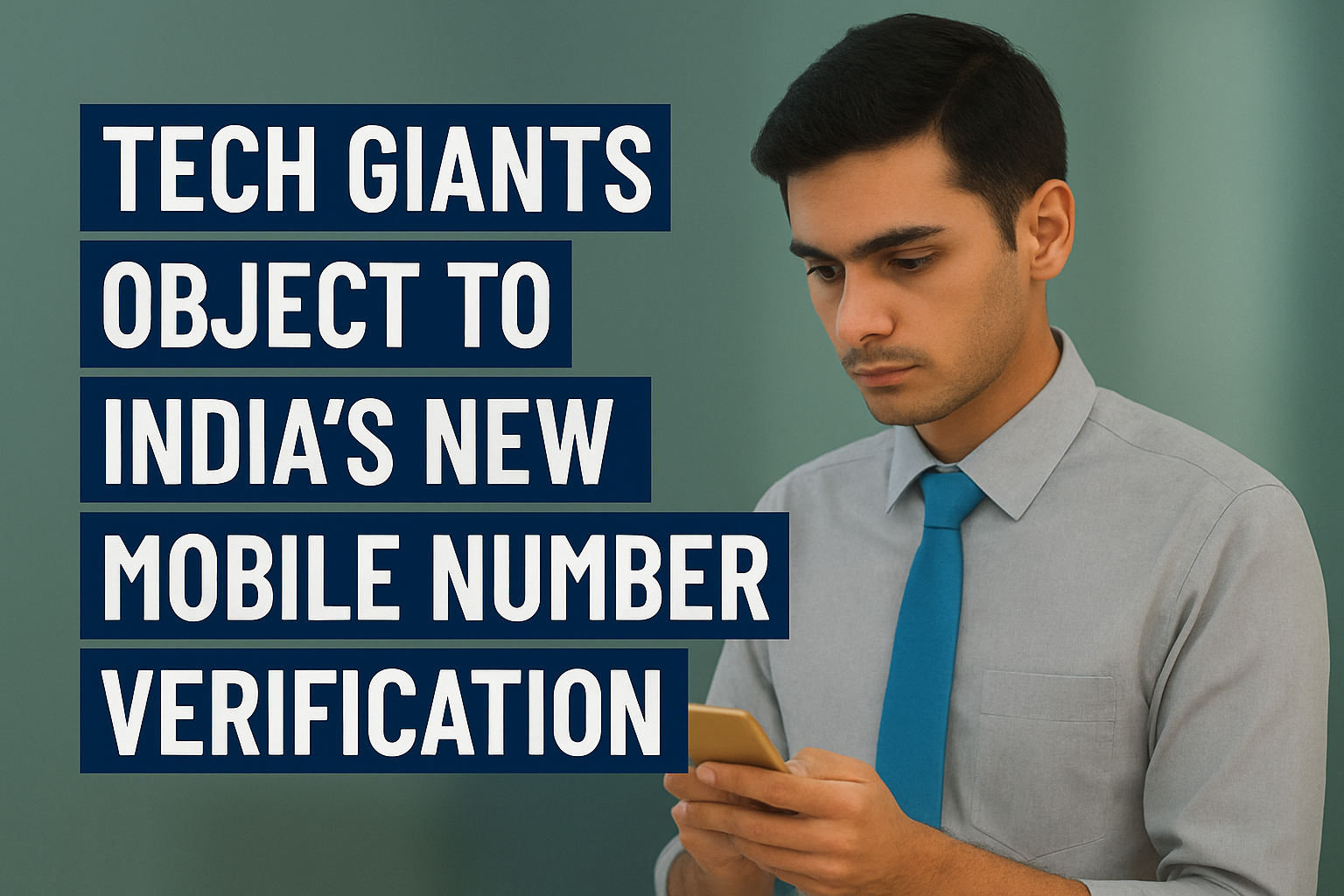
India’s Department of Telecommunications (DoT) has released a draft set of rules that could bring major changes in how phone numbers are verified online. The main aim is to strengthen cybersecurity and reduce the misuse of mobile numbers in fraud, spam, and identity theft.
The draft, shared on June 24, proposes that both telecom companies and internet platforms like WhatsApp, Google Meet, and Zoom must verify that a mobile number belongs to the user before allowing any message or call. If the number is not verified, the app may block the communication.
Telecom service providers already collect documents such as Aadhaar or voter ID to issue SIM cards. Under the new proposal, they will need to make this identity data available for secure verification when platforms request it. This step is designed to improve accountability in digital communication and reduce cybercrime.
For example, if a person tries to send a message or join a video call using a number not linked to their identity, the app could be required to deny access. This would apply to unverified numbers often used by scammers, hackers, or people hiding behind false identities.
The DoT believes these measures will boost cybersecurity by making it harder for criminals to use fake or stolen phone numbers on digital platforms. With India seeing a sharp rise in online scams, the government is focusing on ways to protect users in an increasingly digital world.
However, leading technology companies have expressed concern. Meta (which owns WhatsApp), Google, and members of the Asia Internet Coalition (AIC) have written to the government, warning that the draft rules may be difficult to implement. They argue that verifying the identity behind every number for each message or call would require major system changes.
These companies also say that they already use basic security steps, such as one-time password (OTP) verification via SMS. But the new rules would require deeper checks linked to personal documents, which could slow down services and raise privacy issues.
The Asia Internet Coalition has urged the government to consider less intrusive solutions. They have recommended using automated tools and artificial intelligence to identify fraud, rather than forcing real-time identity checks. Their concern is that these rules, if implemented strictly, could affect the user experience and limit the growth of digital platforms.
Government officials, however, maintain that cybersecurity is a top priority. They say the rise in phishing attacks, financial fraud, and fake profiles makes it necessary to tighten digital controls. According to them, verified communication channels will help make India’s digital space safer for everyone.
The draft is still under review, and the DoT has invited public and industry feedback. The final version may include changes based on the concerns raised by tech companies. The goal is to find a balanced solution that supports cybersecurity without disrupting online communication.
Experts say that India’s move could influence global policy on how mobile numbers are verified online. With one of the world’s largest internet user bases, India’s digital safety decisions often set examples for other nations.
As discussions continue, the focus remains on how to build trust in digital systems while protecting users’ rights. Strengthening cybersecurity is seen as essential, but how to do it effectively without affecting innovation and ease of use, remains the key challenge.





















